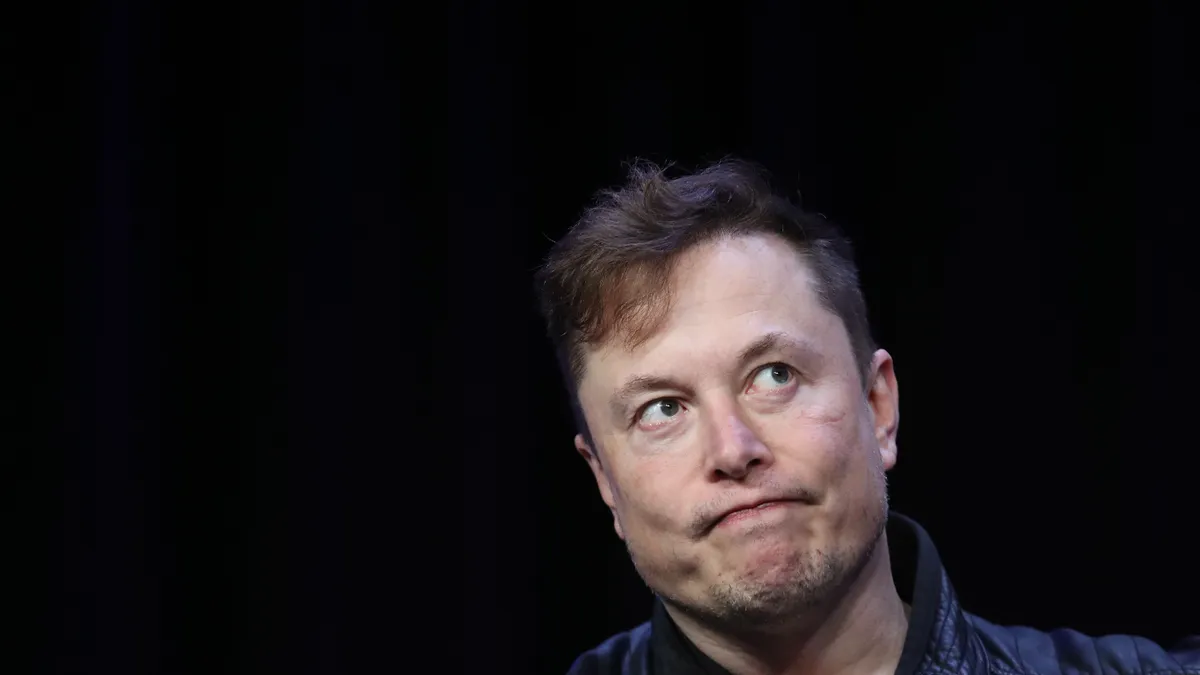Dive Brief:
- The standard for looking at Elon Musk’s record-setting $56-billion compensation package as Tesla CEO is entire fairness, and on that basis the board and Musk breached their fiduciary duty by approving the package and mischaracterizing it in the proxy statement, a Delaware Chancery Court judge ruled this week, rescinding the pay package.
- In a key determination, Musk was found to be a controller of the company even though he didn’t own a majority of the company’s shares.
- “Musk … held some of the most influential corporate positions, enjoyed thick ties with the directors tasked with negotiating on behalf of Tesla, and dominated the process that led to board approval of his compensation plan,” Judge Kathaleen McCormick said. “At least as to this transaction, Musk controlled Tesla.”
Dive Insight:
Musk in 2017 came up with a plan to parcel out his compensation in a series of tranches that would give him 1% of Tesla stock each time the company’s capitalization increased by $50 billion.
The plan was similar to the one that had governed his pay since 2012 and was expiring in 2018 but was multiples higher, putting him on track to earn some $56 billion over 10 years – “250 times larger than the contemporaneous median peer compensation plan,” the judge said.
Musk handed off the plan to Ira Ehrenpreis, a Tesla board member and long-time friend, who along with another friend and board member, Antonio Gracias, shepherded it through the compensation committee and then to a shareholder vote toward the end of 2018.
The plan went through a handful of iterations over nine months but all of the major changes were proposed by Musk himself.
“There were no positional negotiations,” the judge said. “Musk proposed a grant size and structure, and that proposal supplied the terms considered by the compensation committee and the board.”
Not all of the board members had close personal ties to Musk but none of them pushed back against the plan or the process for approving it.
“Musk dictated the timing of the process, making last-minute changes to the timeline or altering substantive terms,” the judge said.
Board members in their testimony defended the plan. The milestones were considered stretch goals and Musk stood to receive nothing if they weren’t reached. If they were reached, the company would grow to be the most valuable automobile manufacturer in the world and would create a market for electric vehicles.
“This ownership stake gave him every incentive to push Tesla to levels of transformative growth,” the judge said, paraphrasing the board’s position.
The board also saw the plan as integral to keeping Musk, who was head of half a dozen other major companies, focused on Tesla.
“One of the biggest purported concerns expressed by the Board was their desire to keep Musk engaged in Tesla despite his significant time commitments at his other companies,” the judge said.
The judge detailed her thinking on how Musk, who had a major stake in the company with 22% of its equity but wasn’t the majority shareholder, nevertheless controlled the company.
“Musk … lacked mathematical voting control,” she said, but “mathematical voting control … is only one method of establishing controller status.”
She went on to establish that Musk had “transaction-specific control” over the pay process, giving him controller status over this part of the business affairs of the corporation.
The decision to put the plan before shareholders, even though a vote wasn’t required, didn’t help the board defend itself.
“Defendants were unable to prove that the stockholder vote was fully informed because the proxy statement inaccurately described key directors as independent and misleadingly omitted details about the process,” the judge said.
Musk hasn’t said if he’ll appeal, but on X he complained about the decision.
“Never incorporate your company in the state of Delaware,” he posted. “I recommend Nevada or Texas if you prefer shareholders to decide matters,” he said in another post.
Greg Varallo, a partner at Bernstein Litowitz Berger & Grossmann, who represented Tesla shareholders, the plaintiffs in the case, credited the court for its thorough examination of the facts and the law. The pay package, Varallo said, was “absurdly outsized.”











